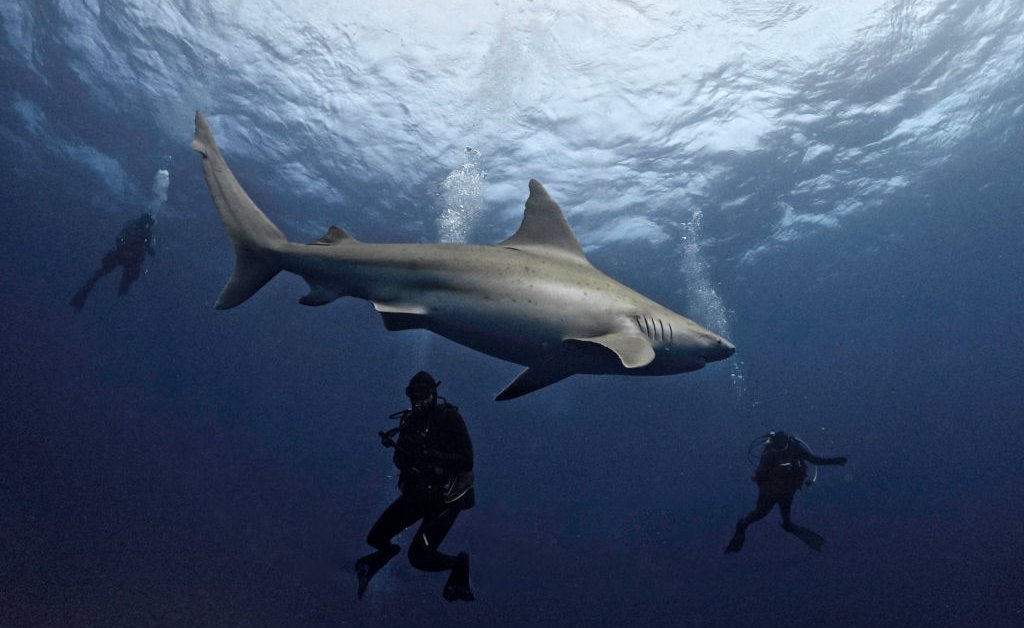The Impact Of Jaws: Shifting Public Perception Of Sharks

Welcome to your ultimate source for breaking news, trending updates, and in-depth stories from around the world. Whether it's politics, technology, entertainment, sports, or lifestyle, we bring you real-time updates that keep you informed and ahead of the curve.
Our team works tirelessly to ensure you never miss a moment. From the latest developments in global events to the most talked-about topics on social media, our news platform is designed to deliver accurate and timely information, all in one place.
Stay in the know and join thousands of readers who trust us for reliable, up-to-date content. Explore our expertly curated articles and dive deeper into the stories that matter to you. Visit Best Website now and be part of the conversation. Don't miss out on the headlines that shape our world!
Table of Contents
The Impact of Jaws: Shifting Public Perception of Sharks
For many, the name "Jaws" evokes images of a terrifying great white shark, a relentless killing machine, and a summer of fear. Steven Spielberg's 1975 blockbuster wasn't just a cinematic triumph; it irrevocably altered public perception of sharks, leaving a legacy that continues to impact conservation efforts today. While the film remains a masterpiece of suspense, its impact on shark populations and the broader understanding of these magnificent creatures is a complex and often tragic story.
Before Jaws: A Time of Relative Ignorance (and Respect?)
Before the summer of '75, public awareness of sharks was limited. While some understood their predatory nature, the fear-mongering that followed the release of Jaws was largely unprecedented. Many coastal communities had coexisted with sharks for generations, with a more nuanced understanding of their role in the marine ecosystem. Fishing, of course, always presented a threat, but the widespread, indiscriminate culling that followed the film's release was a new level of hostility.
The Jaws Effect: Fear and Misinformation Take Center Stage
Jaws wasn't just a movie; it was a cultural phenomenon. Its impact on public perception was immediate and profound. Suddenly, sharks became synonymous with mindless, bloodthirsty killers, a far cry from the complex and vital role they play in maintaining the health of our oceans. The film's portrayal fueled a wave of fear, leading to:
- Increased Shark Cullings: Driven by fear and a desire for "safety," many coastal towns launched aggressive shark culling programs, drastically reducing populations of several species.
- Negative Media Portrayals: The film's influence extended beyond its immediate release. Media representations of sharks continued to reinforce the negative stereotypes established by Jaws, perpetuating the cycle of fear and misinformation.
- A Lack of Conservation Efforts: The negative perception fostered by the film hampered early conservation efforts. The public's fear and distrust of sharks made it difficult to garner support for shark protection initiatives.
Beyond the Fear: Reclaiming the Truth About Sharks
In recent decades, a growing body of scientific research and conservation efforts have worked to counter the negative image perpetuated by Jaws. We now understand sharks as apex predators crucial to maintaining the balance of marine ecosystems. Their decline poses a significant threat to the health of our oceans. Organizations like the Pew Charitable Trusts and the Shark Trust are actively working to educate the public and promote responsible shark conservation.
The Long Road to Conservation
The legacy of Jaws is a stark reminder of the power of media to shape public opinion and its impact on the natural world. While the film's artistic merit is undeniable, its contribution to the decline of shark populations is a cautionary tale. Today, many initiatives focus on:
- Shark Research: Scientists are conducting extensive research to better understand shark behavior, migration patterns, and the threats they face.
- Sustainable Fishing Practices: Promoting sustainable fishing practices is crucial to protecting shark populations and mitigating bycatch (the unintentional capture of non-target species).
- Public Education: Educating the public about the crucial role sharks play in maintaining healthy oceans is essential to fostering respect and encouraging conservation efforts.
A Call to Action: Understanding and Protecting Our Oceans
The impact of Jaws is a compelling case study in the power of media and the importance of accurate information. While the film continues to entertain, it's crucial to remember the real-world consequences of its portrayal of sharks. By supporting organizations dedicated to shark conservation and educating ourselves and others about these vital creatures, we can work towards a future where fear gives way to understanding and respect. Learn more about shark conservation today – the future of our oceans depends on it.

Thank you for visiting our website, your trusted source for the latest updates and in-depth coverage on The Impact Of Jaws: Shifting Public Perception Of Sharks. We're committed to keeping you informed with timely and accurate information to meet your curiosity and needs.
If you have any questions, suggestions, or feedback, we'd love to hear from you. Your insights are valuable to us and help us improve to serve you better. Feel free to reach out through our contact page.
Don't forget to bookmark our website and check back regularly for the latest headlines and trending topics. See you next time, and thank you for being part of our growing community!
Featured Posts
-
 The High Stakes Of Summer Trumps War On Climate Science And Its Impact
Jul 17, 2025
The High Stakes Of Summer Trumps War On Climate Science And Its Impact
Jul 17, 2025 -
 Revs Look To New Jersey For A Performance Revival
Jul 17, 2025
Revs Look To New Jersey For A Performance Revival
Jul 17, 2025 -
 Orlando Citys Starting Xi Tactical Analysis Vs Nycfc
Jul 17, 2025
Orlando Citys Starting Xi Tactical Analysis Vs Nycfc
Jul 17, 2025 -
 New York Red Bulls Vs New England Revolution Betting Odds Spread And Total
Jul 17, 2025
New York Red Bulls Vs New England Revolution Betting Odds Spread And Total
Jul 17, 2025 -
 New York Red Bulls Vs New England Revolution Expert Betting Picks And Analysis
Jul 17, 2025
New York Red Bulls Vs New England Revolution Expert Betting Picks And Analysis
Jul 17, 2025
